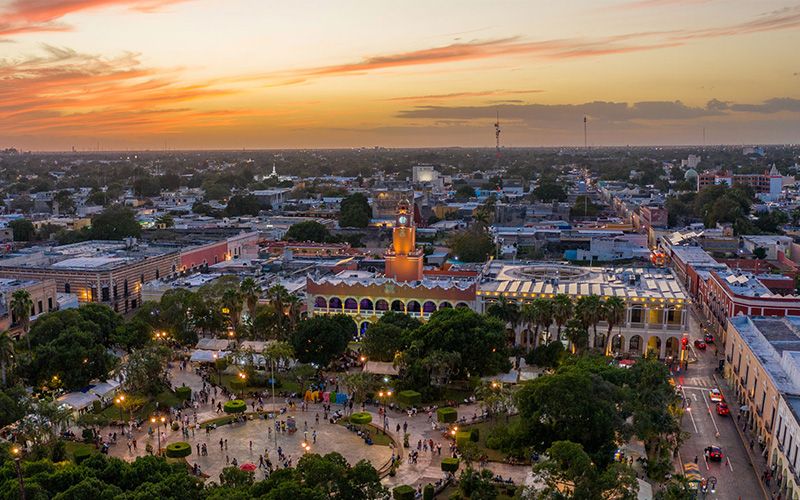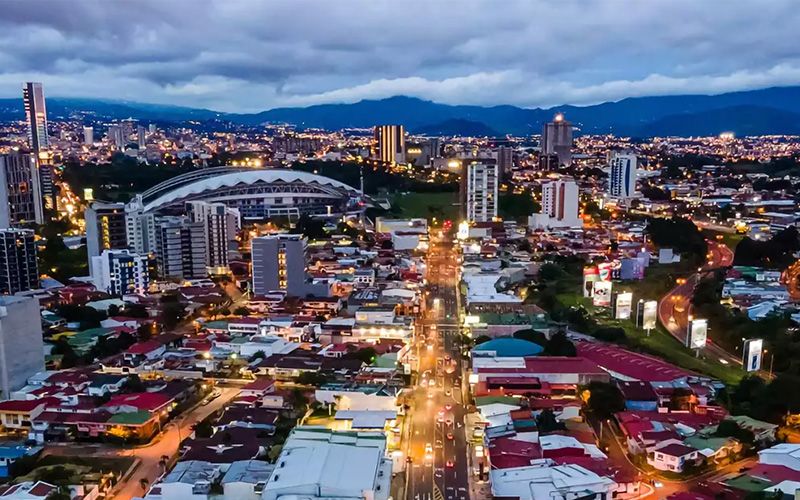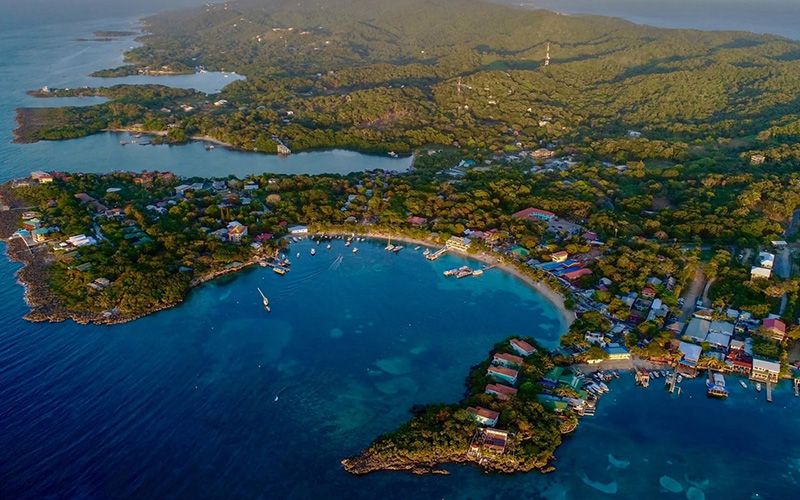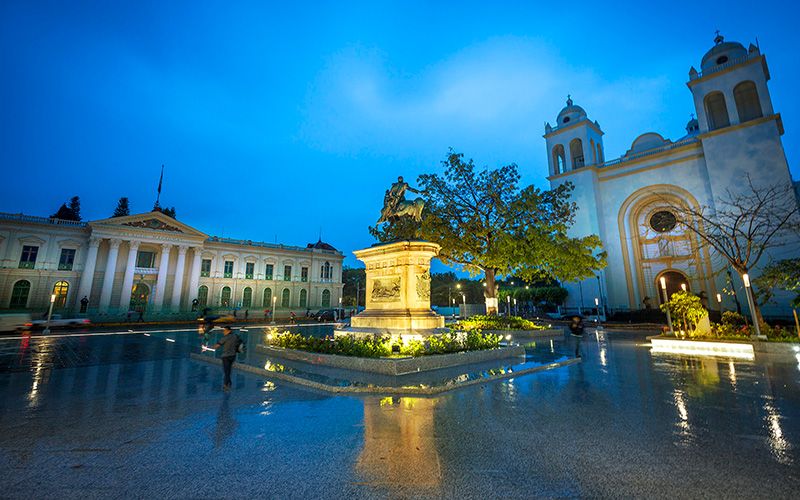Priorities can be different for everyone, but we narrowed down our options based on the following three must haves.

Why it stands out: Consistently among Mexico’s safest large cities with a strong perception of public safety, family-friendly vibe, good healthcare, and expanding fiber options.
Who it’s for: Remote workers who prefer peace, colonial charm, cenotes/weekend nature, and hot (really hot) weather.
Neighborhood notes: Itzimná, García Ginerés, Montebello.
Watch-outs: Summer heat; flights usually hub via MEX or CUN.

Why it stands out: Costa Rica’s Digital Nomad law (Law 10.008) makes legal stays straightforward. Escazú/Santa Ana offer malls, clinics, international schools, and modern housing—ideal if you want city amenities with mountain air.
Who it’s for: Remote workers who want a polished base with quick access to beaches and national parks on weekends.
Neighborhood notes: Escazú (cosmopolitan), Santa Ana (newer builds, gated communities).
Watch-outs: Traffic; higher rents than many CR beach towns.

Why it stands out: UNESCO-listed colonial city with a tight-knit international community, Spanish schools, and an inspiring setting. Good Wi-Fi is common in better apartments/cafés/co-working, but quality can vary—test before you sign.
Who it’s for: Creatives and remote pros who value culture, slower pace, and walkability.
Neighborhood notes: Centro Histórico; check building ISP options (Claro/Tigo).
Watch-outs: Connectivity inconsistency across apartments; prepare a mobile hotspot fallback.

Why it stands out: Reef-ringed island with diving, growing expat scene, and multiple connectivity paths. Traditional fiber backbones reach the mainland, and Starlink projects have expanded high-speed access in pockets.
Who it’s for: Ocean-loving remote workers who want a Caribbean base and are comfortable sanity-checking connectivity by neighborhood.
Neighborhood notes: West End/West Bay for lifestyle; ask landlords about dual-WAN (fiber + Starlink) setups.
Watch-outs: Import costs and island logistics; power/internet resiliency differs street-to-street.

Why it stands out: Fast-improving telecom metrics, a modern café scene, shopping, and hospitals—plus quick escapes to surf towns like El Tunco/La Libertad.
Who it’s for: Remote workers who want a city hub with weekend surfing and are willing to be neighborhood-selective.
Neighborhood notes: Escalón, San Benito, Santa Elena/Antiguo Cuscatlán.
Watch-outs: Be local-savvy about routes/times; verify building fiber and backup power.
If you want the safest bet with city comforts, pick San José (Escazú/Santa Ana) or Mérida. If you’re chasing character and community, Antigua is magic—just verify building-level internet. Want Caribbean lifestyle? Roatán works if you engineer redundancy. Need a Central American capital with services and surf? Choose San Salvador and be neighborhood-intentional.